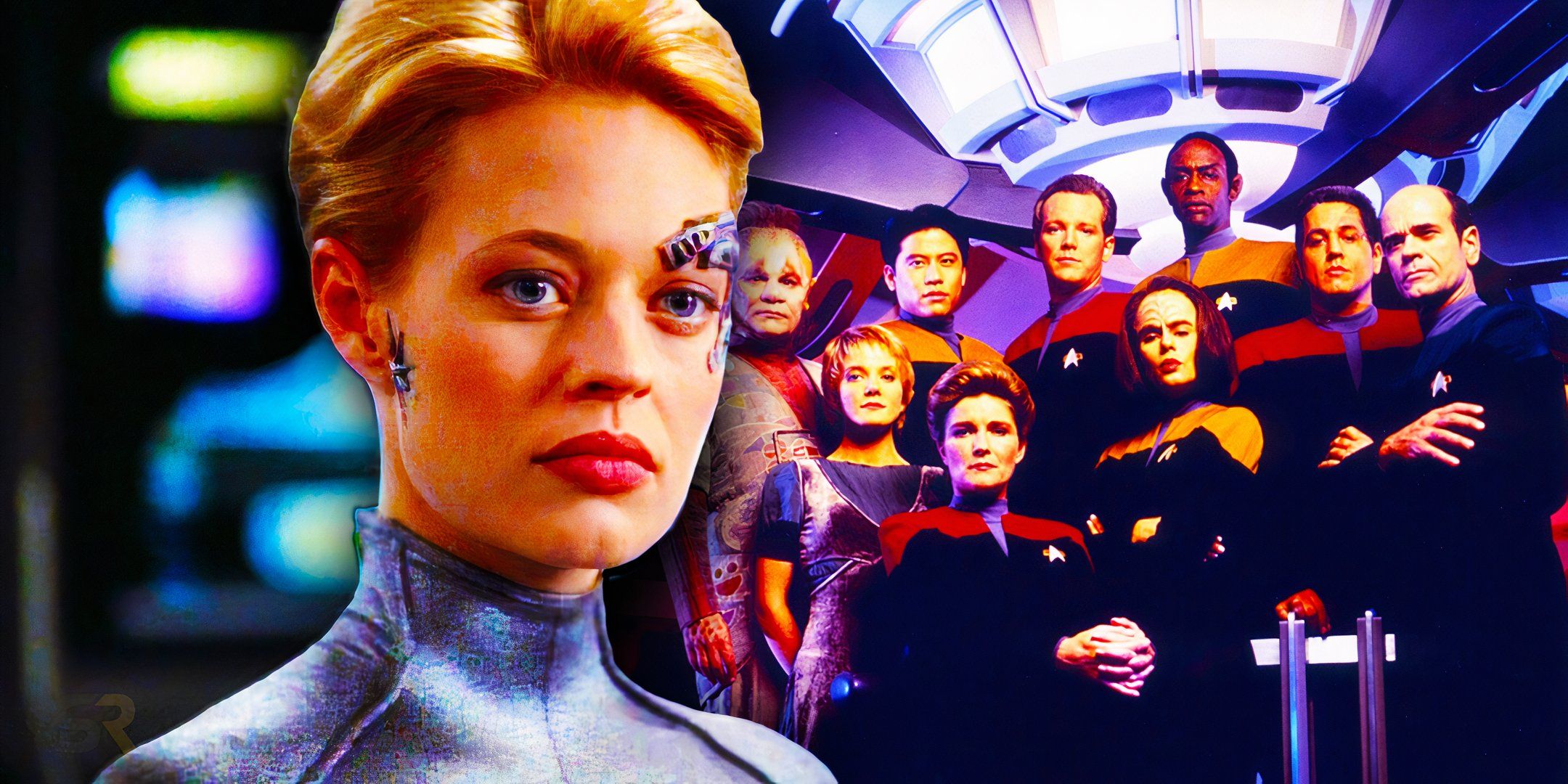In almost 60 years of Star Trek, one episode of Star Trek: Voyager scared me more than any other. Star Trek: Voyager seems like the least likely of all the Star Trek shows to harbor the franchise's scariest episode, and yet, the premise of Star Trek: Voyager is inherently frightening when examined closely. The USS Voyager gets flung 70,000 light years into the bleak expanse of the unknown on its maiden voyaget. In the Delta Quadrant, resources are low, Federation allies are nowhere in sight, and (barring a few exceptions) the only remotely familiar alien species is the Borg.

In Star Trek: Voyager season 4, episode 25, "One", a lengthy trip through a radioactive nebula requires most of the USS Voyager crew to spend months in stasis. Only the holographic Doctor (Robert Picardo) and ex-Borg Seven of Nine (Jeri Ryan) are exempt, and keep the starship running. Everything seems to run smoothly as Seven monitors the crew and makes routine repairs, but visiting trader Lo-Tarik (Wade Williams) quickly becomes a threat. When scans reveal Lo-Tarik isn't real, and the Doctor's program fizzles out, Seven must confront the maddening isolation of being truly alone.
Star Trek: Voyager's "One" Is The Franchise's Most Frightening Episode
"One" Is A Star Trek Thriller That Got Inside My Head
As my pick for Star Trek's most frightening episode, Star Trek: Voyager season 4, episode 25, "One", neatly captures the feeling of horrific isolation and helplessness that Voyager's premise initially promised. When things go awry, Seven of Nine's belief that she's stronger than her fear of isolation is challenged and proven wrong. The metaphorical walls close in, and the sense of dread amplifies. Lo-Tarik, poses the double threat of being sexually creepy and violently prejudiced against Borg. After losing the Doctor, Seven starts hallucinating the crew dying gruesomely, the Borg returning, and everything being her own fault.
Seven of Nine's fears of loss are thrown into stark relief against her isolation, calling to mind all the fear and uncertainty that I felt during the pandemic. After losing one Collective, Seven intentionally separates herself from the USS Voyager's crew, only to experience increasing helplessness and panic. Seven's fear of losing her new collective feels very real; "One" is a story about how isolation and loneliness can manifest and amplify our worst fears, especially fear of the unknown. There are few things scarier to me than my fears seeming true, as the case is for Seven of Nine in "One".
Why Star Trek's Darker Episodes Typically Work So Well
Star Trek's Optimism Works Best With The Contrast Of Darker Stories
Star Trek's darker episodes typically work so well because they provide a striking contrast to Gene Roddenberry's vision of optimism that Star Trek is celebrated for. There has to be tension and resolution in dynamic, thoughtful storytelling, and Star Trek achieves success by developing a whole range of tones. Star Trek: Discovery, for example, pulls its whole series arc out of Captain Gabriel Lorca's (Jason Isaacs) oppressive shadows and into Captain Michael Burnham's (Sonequa Martin-Green) steadfast hope. Star Trek: Deep Space Nine is unquestionably dark, yet its shining moments stand out as some of Star Trek's brightest.
Star Trek: Deep Space Nine season 7, episode 4, "Take Me Out to the Holosuite", and episode 15, "Badda-Bing, Badda-Bang", are willing to put comedy right in the thick of the Dominion War's denouement. They're more effective and memorable for taking that chance.
Unlike Star Trek horror episodes that are more universal, Star Trek: Voyager's "One" successfully portrays relatively realistic fears of isolation, panic, and the unknown. The feeling of losing control hits home far more than any Borg or Gorn attacks in more objectively scary Star Trek episodes. My own thoughts whispered like Lo-Tarik that I may not be strong enough to get through my own metaphorical radioactive nebula. I've desperately scrambled to manage what feels like increasingly impossible tasks. In the end, Star Trek: Voyager remains reliably comfortable, and suggests maybe, like Seven, I can trust those around me to help.



